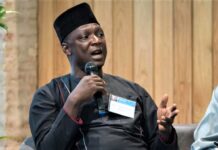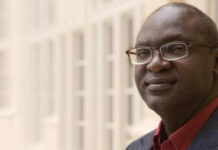End CBN loans, stop fuel subsidy, tax sinful goods, boost digital economy, fix forex, speed up port clearance also among recommendations
By Jeph Ajobaju, Chief Copy Editor
Fuel subsidy must be removed for Nigeria’s economy to lift, repeats the World Bank, even as critics say the N5,000 payment Abuja is dangling to 40 million poor folks to cushion the effect of subsidy removal by June 2022 is not enough.
Ending Central Bank of Nigeria (CBN) loans to the treasury, raising taxes on ‘sinful’ goods, creating a digital and market determination of foreign exchange (forex) rate are also part of the seven pillars of Nigeria’s growth.
The World Bank listed the conditions in its November 2021 Nigeria Development Update which also shows that inflation has dropped an additional eight million Nigerians into poverty in less than two years.
The report says Nigeria no longer benefits from high oil prices because it grants high petrol subsidy which results in low revenues.
The report reiterated that Nigeria has the worst revenue-to-GDP (Gross Domestic Product) ratio among 115 countries monitored by the World Bank. Worse than Haiti.
For Nigeria to develop, the World Bank recommended a number of policies for implementation from 2022, as TheCable summaries below from the Nigeria Development Update, a document 112 pages long.
__________________________________________________________________
Related articles:
World Bank says high jobless rate fuels Nigeria’s insecurity
World Bank blames CBN for naira travails
Subsidy on fuel may notch up to N3tr in 2022
__________________________________________________________________
Raise taxes on tobacco, alcohol, other sinful goods
The World Bank urged Nigeria to raises taxes on what it calls “sinful goods” such as cigarette, alcohol, sugary drinks.
It said Nigeria has “accelerated efforts to diversify its revenue stream; however, risks to the implementation of these reforms remain high.
“These reforms include improving tax administration, especially for VAT, while also undertaking some significant policy reforms, such as implementing a levy on electronic money transfers, and additional excise taxes on alcohol and tobacco.
“While these reform efforts are expected to generate additional revenues of over ₦3 trillion a year, they may be challenging to politically implement in the run up to the national elections, planned for 2023.”
Despite the perceived difficulties, the World Bank advised Abuja to increase these taxes to generate more revenue.
Stop fuel subsidy. It doesn’t benefit the poor
Fuel subsidy removal has been a recurrent recommendation in the World Bank and International Monetary (IMF) policy briefs for Nigeria for more than a decade, with little result.
The World Bank also insisted on the removal of premium motor spirit (PMS) in its latest report, arguing that the poorest Nigerians hardly benefit from subsidy.
“Nigeria is the only country in the world with a universal price subsidy that applies exclusively to PMS. Universal price subsidies for liquid fuels are almost always regressive, as the rich consume far more fuel than the poor.
“PMS subsidies are especially regressive because PMS is used primarily in light- and medium-duty motor vehicles, which are rarely owned by the poor.
“Since raising PMS prices tends to have minimal adverse effects on poor households, governments worldwide have typically prioritised eliminating PMS subsidies over those that apply to other fuels.
“However, Nigeria has done the opposite – eliminating all subsidies for liquid fuels other than PMS.
“Moreover, the Nigerian PMS subsidy is exceptionally generous, and in October 2021 the PMS pump price was the seventh-lowest among 168 economies surveyed at just ₦495 per liter.”
The World Bank said the poorest 40 per cent of Nigerians consume less than 3 per cent of total fuel consumption in the country.
End CBN loans to govt
If Nigeria’s current debt accumulation levels are maintained, the World Bank said, its debt-to-GDP ratio will hit 40 per cent by 2025.
It advised the government to cut back on overdrafts from the CBN through the Ways and Means financing system, and to keep overdrafts to levels stipulated by law.
“Faced with a widening budget deficit, policymakers have increasingly turned to costly CBN overdrafts (also known as Ways and Means financing), which are not properly integrated into the fiscal accounts.
“While Nigeria’s debt burden remains manageable for the time being, maintaining sustainable debt dynamics will require curbing the use of CBN financing for the deficit and addressing fiscal pressures to break the cycle of low growth and rising public debt.”
Fix forex policy
Increase in parallel market rate (not official market rate) equals increase in inflation, the World Bank argued.
“The current mix of monetary, fiscal, foreign exchange (FX), and trade policies also plays a prominent role as a driver of inflation. “
It recommended that fixing inflation needs solution from forex management.
“Trade and FX restrictions, including the closure of land borders starting in August 2019, have increased prices for food and consumer goods, and imports of over 40 goods, including many staple foods, are currently ineligible for FX through formal windows.
“Nigeria’s exchange rate management has resulted in the rise of parallel rates, which are closely linked to food price dynamics.”
The bank recommended enhancement of the “flexibility and predictability of exchange rate management” and asked that all land borders be fully open for trade.
Elevate digital economy
“One leading barrier is Nigeria’s underdeveloped fixed broadband infrastructure, which is partly attributable to burdensome federal and state regulations.
“This weak infrastructure base creates a ripple effect across the economy, contributing to low levels of financial inclusion, and persistent geographic and gender gaps in access to and use of digital technologies.
“Conflicts, particularly in the north, exacerbate these challenges, due to heightened security risks.
“By investing in its digital infrastructure and strong foundational ID systems, Nigeria can promote economic development, security, governance, and efficient delivery of services, thereby accelerating progress toward an inclusive digital economy.”
The World Bank urged Nigeria to build digital public platforms, digital financial services, digital entrepreneurship, digital skills, and digital infrastructure.
Protect the poor
Abuja has instituted cash transfer to the poor, but the World Bank asked for more.
The bank said when subsidies are removed, inflation will occur which will affect the poor and vulnerable. It urged the government to fix this by protecting the poor.
“Implement a large-scale (covering 25% to 50% of the population) and time-bound targeted cash-transfer program to mitigate impacts of high inflation and the PMS subsidy removal.”
“Redirect savings from PMS subsidy to finance primary health, basic education, and rural connectivity projects.”
The bank noted that Abuja plans to spend N3,000 per person per year on health in 2022 while fuel subsidies could cost N13,000 per person per year in the same year.
It called on the government to rearrange its priorities to shield the poor from bearing the burden of subsidy removal.
Speed up port clearance
The World Bank advised Nigeria to “reduce delays in border and port clearance by simplifying and harmonising documents, streamlining, automating procedures, and introducing risk-based customs interventions.”
It said this would entail spending up import processes at Apapa Port, the busiest in Nigeria but one of the least efficient on the African continent.















